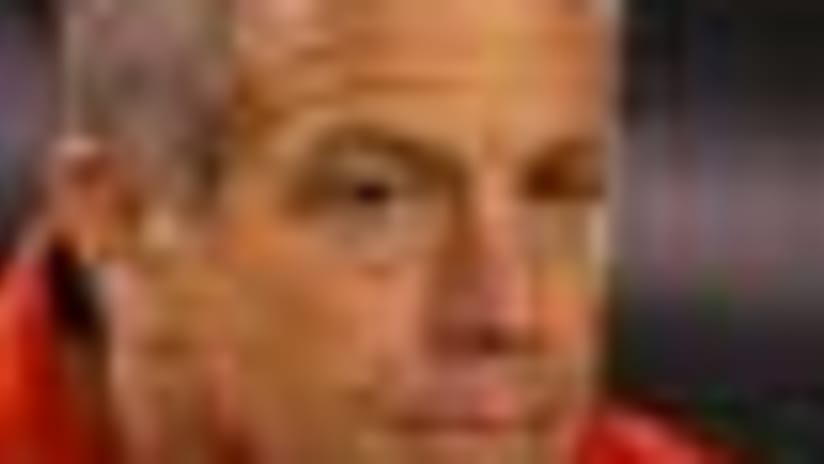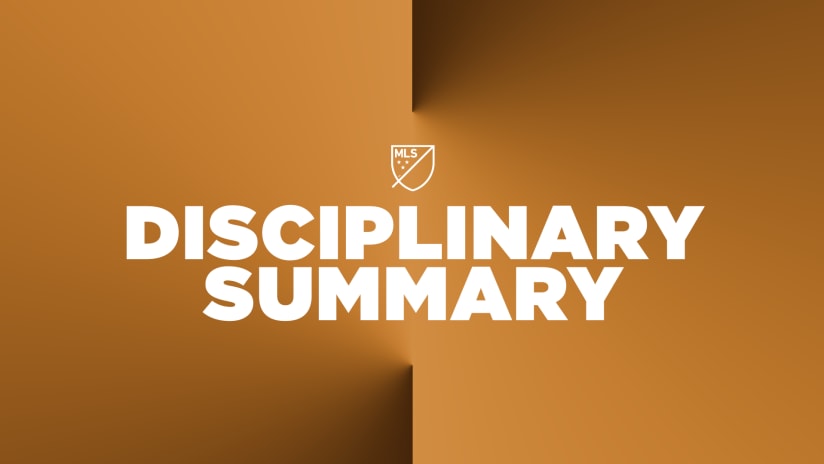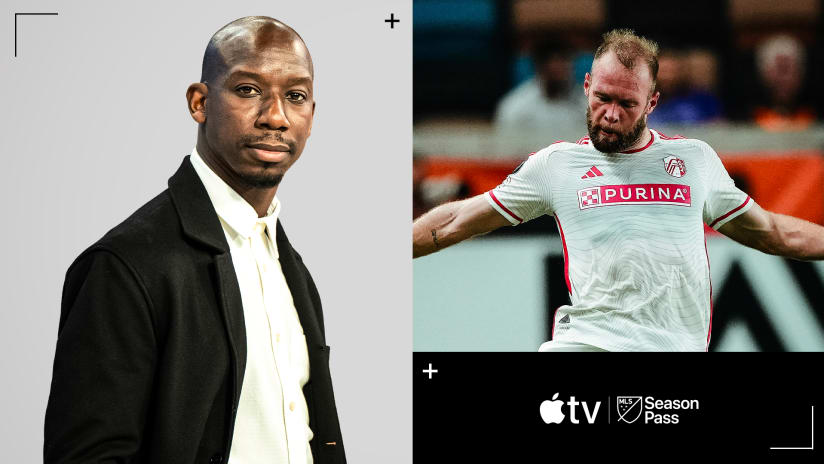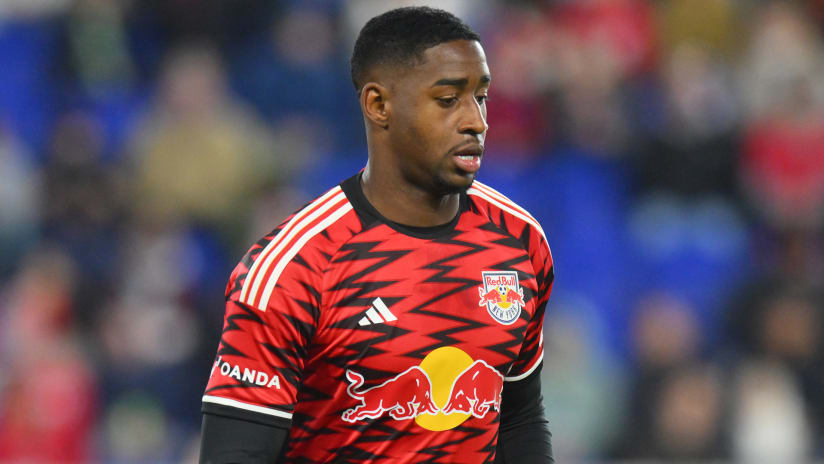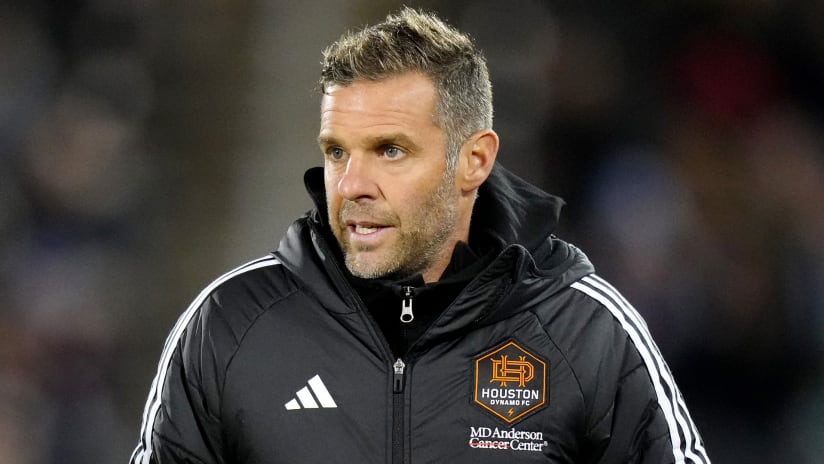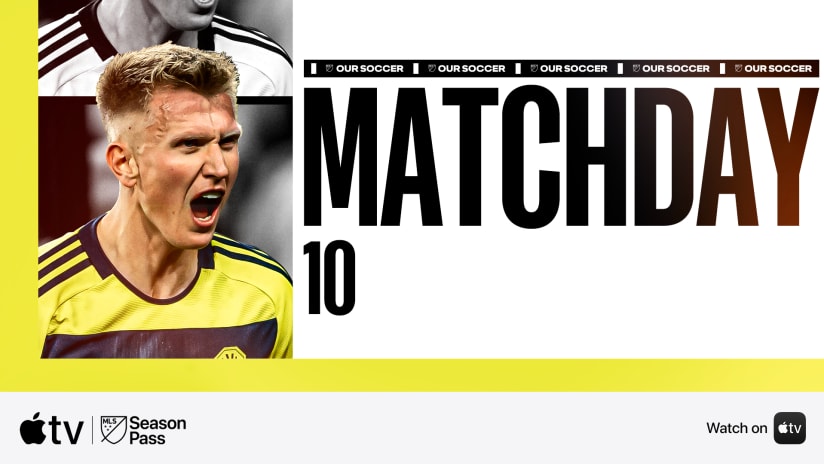and that's unacceptable. The little things matter, points matter and the everyday, 'let's-get-better' attitude matters."
Q: Half the roster at the end of the season was with the Fire prior to your arrival in Chicago, while you have brought in the remaining dozen players during your tenure. Even the assistant coaching staff is a mix of the old and the new. Do you feel that you've put your stamp on this team, or do you think that you have had the opportunity to do so?
A: "From the day of my press conference in November of 2002 I never thought about the past or the past players that came from a different era of the team. It became my team when I took this job. Of course, whenever you're hired in any position you're going to have people that were a part of a former leader or coach. I felt last year, and this year, that I tried to incorporate my style, my approach, and the way I do things with the group. But I don't think myself or my players or my staff has looked back to anything prior."
"Putting teams together is a work in progress. Whether it's a team that you've had for ten years or one year, year-to-year, it changes. The mentality changes, everyone's situation changes or veers slightly, whether they are in or out of contract, in the starting 11 or out of it. It's like starting over each year. But in the standpoint of putting my stamp on things, I haven't felt that that has been a problem. I think the guys have gotten to know my style and the way I like to do things."
Q: While many thought the backline would be the weak part of the Fire at the beginning of the season, it became clear that scoring might be the team's most glaring weakness. What can that be attributed to, if anything?
A: "Well, we weren't perfect defensively, either. There was certainly a lot of area for improvement there. On the attacking side, we did lose Ante Razov for pretty much the entire season, and that hurt. Other guys were in and out of the line-up, and I think that affected our output as well. But it would be unfair just to say that one or two attackers didn't produce or that a particular segment of our team failed because, collectively, we all failed in spots during the year, and that didn't allow us to produce the kind of goals we should have. There was a collective misfiring throughout the year."
Q: The Fire announced the team's traditional four end-of-the-year award winners last week. If you could create any awards for your side for the 2004 season, what would they be and to whom would you dole them out?
A: "If I had one award, I would say the "Keep an Eye on This Guy" award would go to Justin Mapp. I felt that he was a guy who, from the early to middle part of the season, showed some flashes up until the time he got hurt. But he emerged as a special type of player for us, a guy who could make a difference on the team. And he's still a very young guy."
Q: While each off-season entails the movement of players, 2004 will make that even more of an issue with the upcoming MLS Expansion Draft. What is your philosophy in approaching the Expansion Draft in regards to whom you can keep and whom you will expose? Are any factors, such as salary budget, talent, potential and team chemistry, raised above the others?
A: "The one thing that is at the top of the list is retaining quality and players that you feel are still your future, players that you feel will be your core. Of course, you have to factor in a lot of other things, but that's at the top of the list, to identify those players that we feel we want to continue with, to build our team with as a core base, is the number one priority. Then we'll factor in age, salary budget, positions - those are real factors, too. We know that we will lose one, or two, and no more than three players from our roster by exposing them, but every team is going through the same process. As we did last year, we'll go through a real evaluation process from top to bottom with our roster to determine those factors."
Q: Expansion has been one of the hot topics surrounding MLS for the past 12 months and will continue to be a looming issue as MLS goes from 12 teams to 14 teams in the future. What do you expect to see from the 2005 entries of Real Salt Lake and CD Chivas USA based on the head coaches they have hired?
A: "That's very tough to say. I know [Thomas Rongen (Chivas USA) and John Ellinger (Real Salt Lake)] both personally. They are good guys and good coaches. They probably philosophically see soccer in some ways the same, but in some ways different. Each organization probably has different philosophies as to which direction to go. You can only speculate based on their knowledge of players and past players they may have coached as to which direction they may go, but only time will tell."
Q: What positives and negatives do you foresee as the league begins to grow once again and how will it affect individual teams such as the Fire?
A: "Well, when you grow, that's a good thing. There is a future, and you legitimize the league when you add teams. You become a real league in our society and throughout the world you gain more respect. It also means that we're heading in the right way financially, with the facilities that are being built in several cities, including Bridgeview. It is making more of a stamp on the sporting scene in our country."
"I would say the biggest negative is the concern regarding the quality of our product. Now you're opening up a lot more job opportunities, which is also a positive, but the negative is that it may water down the product. Good things come from growth, but that's why they use the term 'growing pains.' I think the growing pain in this case is that the quality might drop in the short term. Hopefully the league can address those issues and help make the quality better."
Q: Will that issue directly affect the way the Fire is able to scout for talent in the future? Does that make it more imperative for the staff to be able to find that "diamond in the rough" type of player?
"You would do that regardless, but now you've got more competitors out there doing the same thing. We're all kind of in the same market, so now you're adding more people to compete with. That even becomes more of a League question philosophically; as to what direction teams can go with the amount of foreign players you can bring in. Clearly, it becomes an economic issue. Every team's economics are different even though we do hold to a strict salary budget. It is still in our best interest to scour the world for talent that we can bring in within our means and our budget to help us get better, regardless of expansion or growth. It's our responsibility to do that."
Q: How would you like to build the Fire as it prepares for 2005?
"Well, there will be changes, there's no question. It would be difficult for me to say what those changes will be, but I have supreme confidence in my ability, my staff's ability and this organization's ability to succeed in 2005. If things go a little bit differently this year, the outlook would have been a lot different. We know we need to be better in certain areas, and we will do that. I believe very strongly in our core, key players within our organization. I think they will be better and hopefully we'll bring in others that will allow them to be even better, and vice versa. I can't be specific in regards to what our roster will look like, but I know that we will have a team that will compete and be better in 2005."
Q: You have had the opportunity to be a part of some special programs at many levels, from the University of Virginia to D.C. United to the U.S. men's national team. What qualities are there about the Chicago Fire that you believe makes it a special organization?
A: "For one, as an organization, I believe that there is very good leadership. You need good leadership, and that starts with [GM] Peter Wilt. Underneath that, you need to have an organization that has a true team concept, which I do believe the Fire organization does. I believe everybody is out for the common goal of making this the very best team it can be, and I think that is critical. As that filters down to the team, I believe you can never succeed unless you have a group that is willing to be honest, that works hard and that competes. Those are three important traits, along with quality, for a team to succeed. They have to have that "I'll bail you out" mentality, and I think that is true of our team as well as our organization. I can't imagine another organization in MLS that can one-up us on that end."

